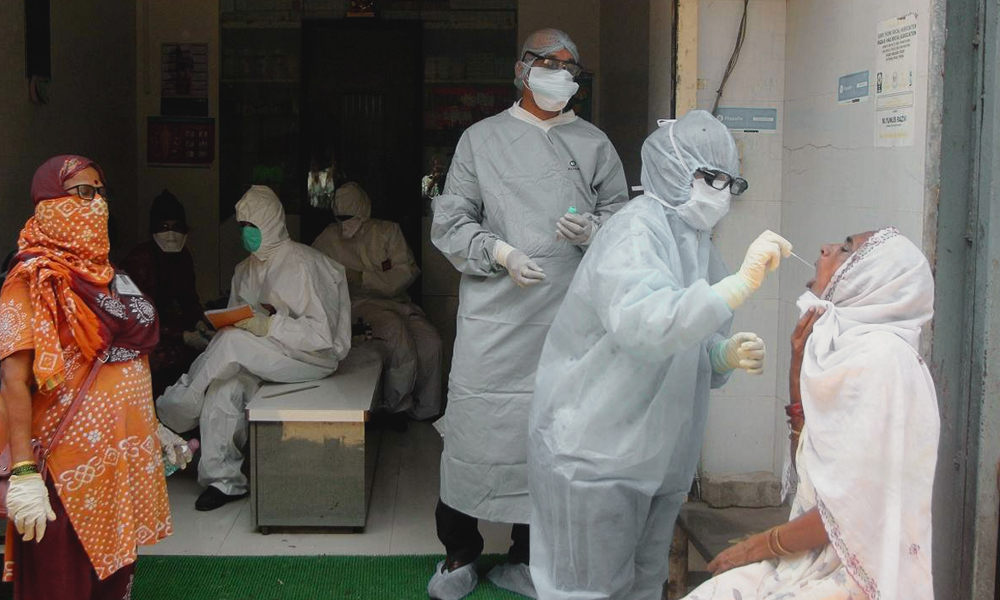
Credits: TOI
India
Amid Drop In Daily Cases, Experts Raise Questions On Country's Testing Regime
 |
|The decrease in daily numbers has not shown India of gaining control over COVID-19 but has largely brought attention to the 'spotty testing levels' and reliance on rapid antigen testing than RT-PCR.
India's coronavirus tally surpassed a 90 lakh mark on Thursday, with over 45,000 new cases. The country has been reporting fewer cases (less than 50,000), compared to the peak of more than 97,000 cases in mid-September, which has raised a few questions on the country's testing regime.
The decrease in official daily numbers has not shown India of gaining control over COVID-19 but has largely brought attention to the 'spotty testing levels' and reliance on 'questionable kits', reported Bloomberg.
Although India's daily testing has increased since the initial days of the pandemic, currently at about 10 lakh, it's still much lower than most countries with high infections. Most of the results come from quick antigen tests which are less accurate than RT-PCR tests.
Health experts fear new waves of coronavirus in the country, given the season of weddings and festivals amid a smoggy winter. "Rapid antigen tests are not very reliable, not sensitive, and the patients are not getting treatment at all. The coming months will be very dangerous," Harjit Singh Bhatti, president of the Progressive Medicos & Scientists Forum told the media.
Countries like the US and UK, which have seen a significant outbreak of the virus continue using RT-PCR tests, that take longer to generate results by detecting the genetic material of the virus but are more reliable, compared to rapid antigen tests.
According to the experts, rapid antigen tests can help countries with surging outbreaks quickly detect worst-hit areas, but it once cannot assure the accuracy in the results.
New Delhi-based global coordinator of the People's Health Movement, T. Sundararaman said that these tests could leave high rates of false-negative tests. "Given that 49 per cent of India's daily tests were rapid antigen, an increase from about 25 per cent to 30 per cent in mid-August, India urgently needs to follow up with RT-PCR," Sundararaman added.
The number of cases you can identify depends on how effective your testing is, Rijo M. John, an adjunct professor at Rajagiri College of Social Sciences in Kochis spoke to Bloomberg. He said India has good data on tests and cases in city centres and urban districts, but it is missing in rural areas, which is all the more dangerous.
A significant example could be of Bihar, a state with a population in millions. Given that it recently held elections, where swarms of people were seen at campaign rallies, with few wearing masks, the state can be the example of how low overall testing and low-quality tests could be obstructing a clear picture of India's pandemic situation. More than 88 per cent of tests in the state are the rapid antigen variety. The state reported 607 cases on Thursday, despite its vast population.
Whereas, Uttar Pradesh, the most populous state reported over 2,500 new cases. Bihar's number is less than what has been reported from Delhi as well, that recorded over 6,000 new cases.
Experts said that Rapid antigen tests for COVID-19 provide quick results, but India should rely more on RT-PCR tests because of its efficacy and accuracy.
Also Read: First Signs of Herd Immunity Seen In Small Population Groups In Pune: Report